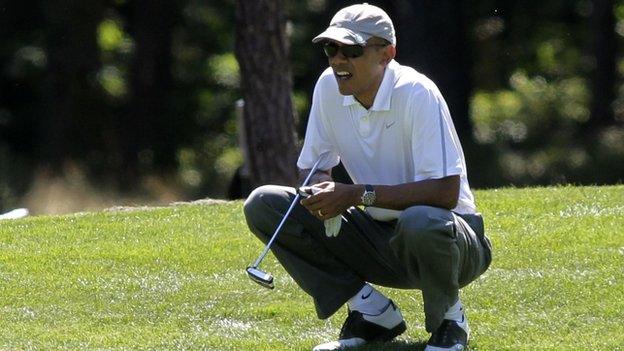Calculating the odds in golf - is it really possible?
- Published
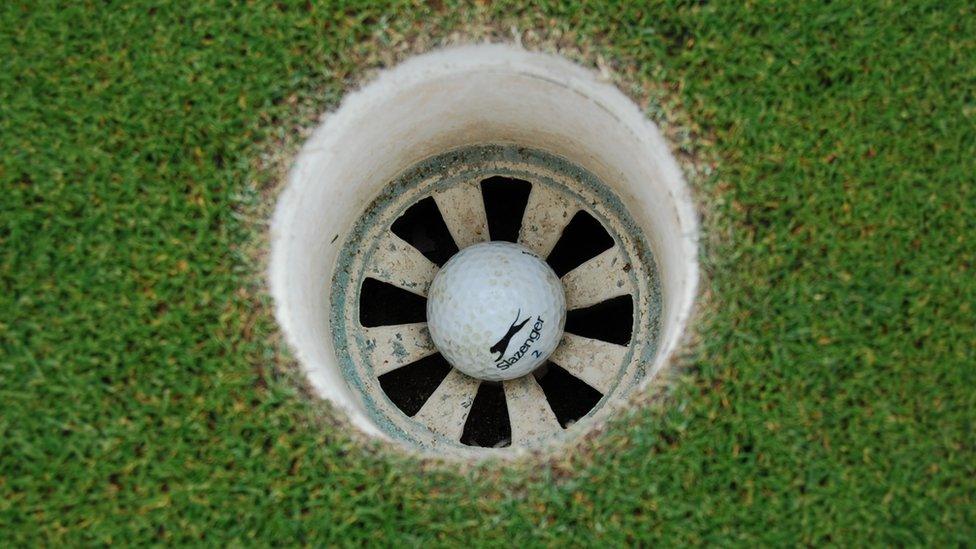
US president Donald Trump has claimed to be "the best golfer of all the rich people"
Just what are the odds of scoring two holes-in-one in one round of golf?
Few would consider it an easy calculation to make although in everyday language, it is safe to say, it is pretty astronomical.
But according to North Korean media sources, the late president Kim Jong Il shot no less than 11-holes-in-one the very first time he tried his hand at the game.
Incidentally, US president Donald Trump, who has visited his own golf courses numerous times during his presidency, has claimed "to be the best golfer of all the rich people".
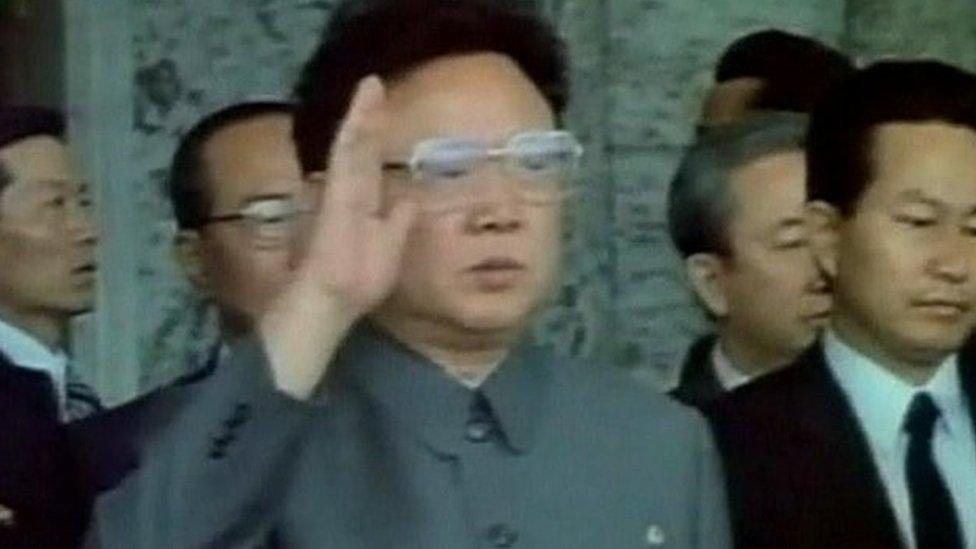
The late North Korean dictator Kim Jong Il, is reported to have achieved 11 hole-in-ones, the first time he ever played golf
The president once encouraged a businessman to regale a meeting of manufacturing executives at the White House with the tale of how he had managed a hole-in-one during a round with Mr Trump.
Chasing Rory
While achieving a single hole-in-one is a rare event, getting two in one round is extremely rare - and one beyond imagination for most of us.
But that is exactly what happened earlier this month when Armagh teenager Joe Rooney, 16, managed the impressive feat.
Now Joe is not just "anyone": He has a golf handicap of two and has ambitions to follow in the footsteps of Northern Ireland golfing great Rory McIlroy.
The BBC coverage of Joe's achievement included the statistic: "The odds of an amateur golfer hitting two holes-in-one in the same round are a staggering 67 million-to-one."
That figure prompted a passionate and immediate rebuttal from one reader who slammed it as "blatantly incorrect".
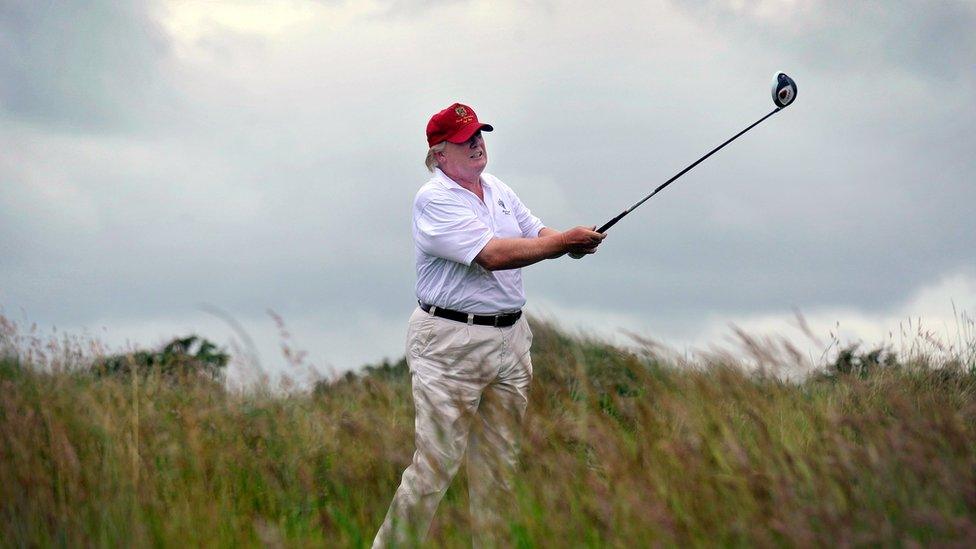
Donald Trump has long boasted of his golfing abilities
Our critic complained: "The chance of an event of this nature occurring in sports are not the same as the frequency at which they occurred in the past.
"It is not the same as rolling a die or tossing a coin.
"If this were true then world records for athletics would never be broken, because there would have been a zero occurrence rate of an athlete achieving that mark in the past."
So, could it actually be the case that with improving standards in sport, the odds of a hole-in-one double are actually falling?
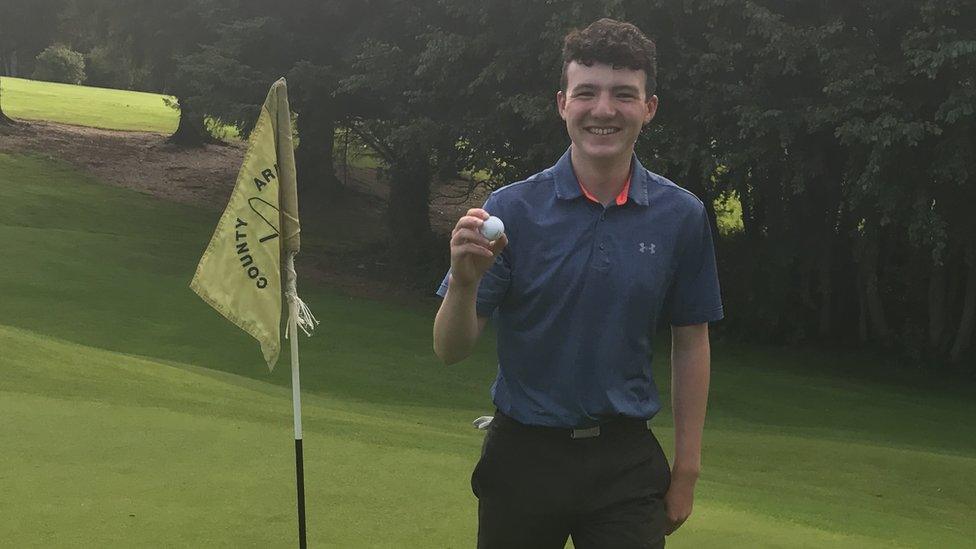
Joe Rooney said he went 'crazy' after hitting his second hole-in-one of the round
In the interests of journalistic accuracy, we decided to take a closer look at the odds, with the help of experts at Ulster University.
First up, Eric Wallace, professor of biomechanics and sports technology:
"This prediction is extremely difficult/tenuous due to the high number of contributing factors and variables to the likelihood of the occurrence and the lack of historical data for two hole-in-ones in the same round - which in itself may indicate the huge odds against it," he said.
The professor said the odds would be hard to calculate, but he agreed that it was not purely a question of chance, due to the high number of other factors involved.
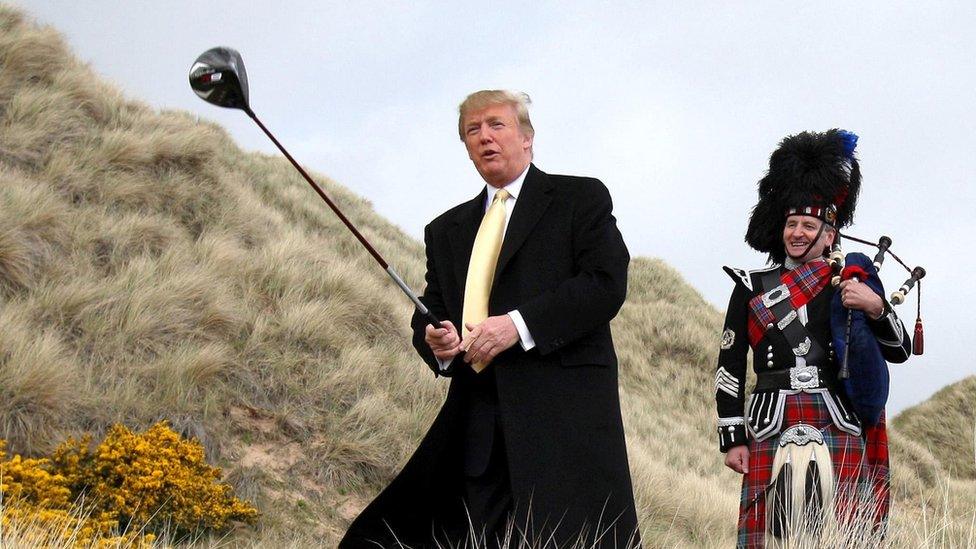
Donald Trump spends much of his free time golfing, as did President Obama, something President Trump criticised him for
"Thus the comparison is not really valid," he said.
His Ulster University colleague Mark McCartney, a senior lecturer in mathematics, was more specific.
"The statistic for an amateur getting a single hole-in-one seems to be 1-in-12500, external, which I would then expect to lead to the odds of getting two in a round to be about 1-in-a million (1-in-1022550)," he said.
"That calculation assumes that getting one hole in one doesn't boost your confidence and game to make it significantly more likely that you would get another (which is a reasonable assumption).
"Your reader is making an unwise extrapolation from (a) high performance sport and (b) cases where there are no stats (in the case of a particular record never having been beaten) to amateurs where we have stats.
"Thus we do have statistics for amateur players scoring hole-in-ones, so it is reasonable to use them.
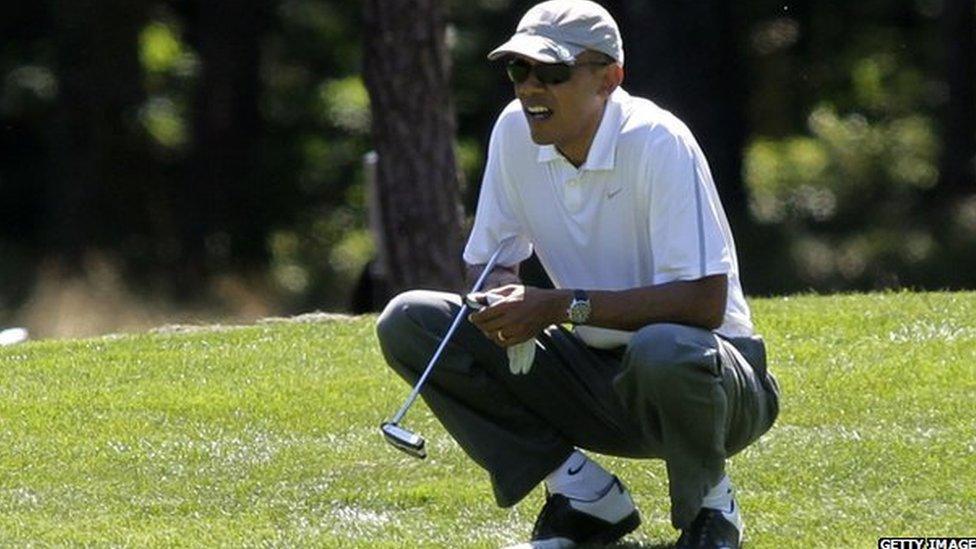
Like other US Presidents, including Donald Trump, Barack Obama has been criticised for the amount of time he spent golfing
"For high-end sport what we would do is look at historical data, say for the records for the long jump, or marathon, and see how these have changed over the last, say, 60 years.
"We can then use that to help us predict the likelihood of the next record break, or indeed what the limits of the record can be (for a human, there are going to be straightforward issues in biomechanics and physics which will set an absolute ceiling on how far someone can jump, or how fast they can run).
"The other thing on high performance statistics is that we are dealing with small numbers of elite athletes, changes in sports technology, and very small changes to make new records - so it is going to be (I expect) very hard to predict.
McIlroy and Jimenez hole-in-one
However, mathematics Professor Sally McClean, who also works at Ulster University, has vindicated our original reporting of the odds.
"The figure of 1-in-67 million quoted comes from US Hole in One Insurance, external and also Golf Digest, external," she said.
"Golf Digest magazine, which has been tracking hole-in-ones since the 1950s, has published findings from Francis Scheid, a former mathematics professor at Boston University who is also known as Professor Golf.
"Golf Digest calculated that a low handicapper has odds of 1-in-5,000 of making a hole in one in a round.
67 million attempts needed
"I think they also assumed that there are typically four par-three holes in an 18 hole course and the probability of getting a hole-in-one for a hole with greater than par-three is negligible.
"Based on these assumptions the chances of a low handicapper making two hole-in-ones in a round are 67 million to one.
"This result is well known and much cited," she added.
So there you have it; all you have to do is try 67 million times and you should, probably, match young Joe's feat.
You had better get started.
- Published7 August 2017
- Published4 August 2017
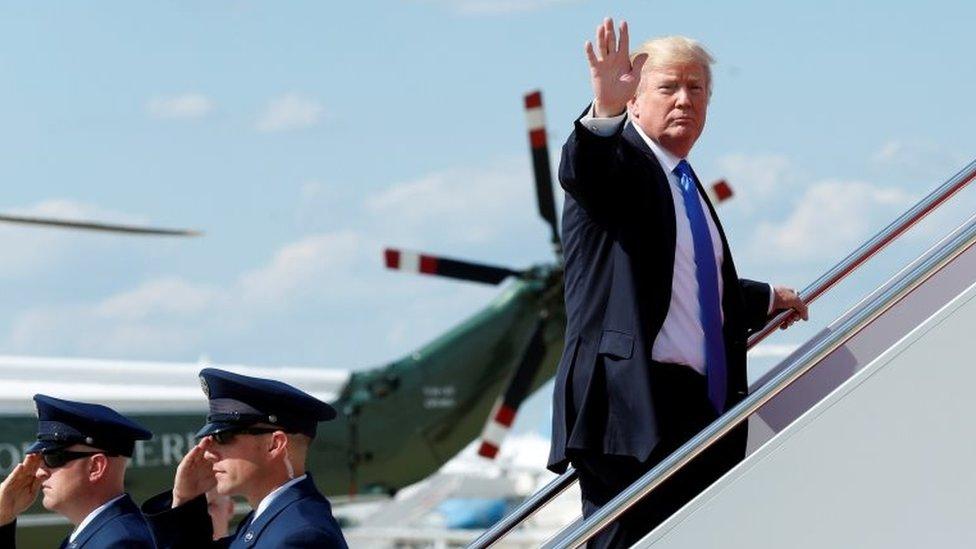
- Published3 November 2016
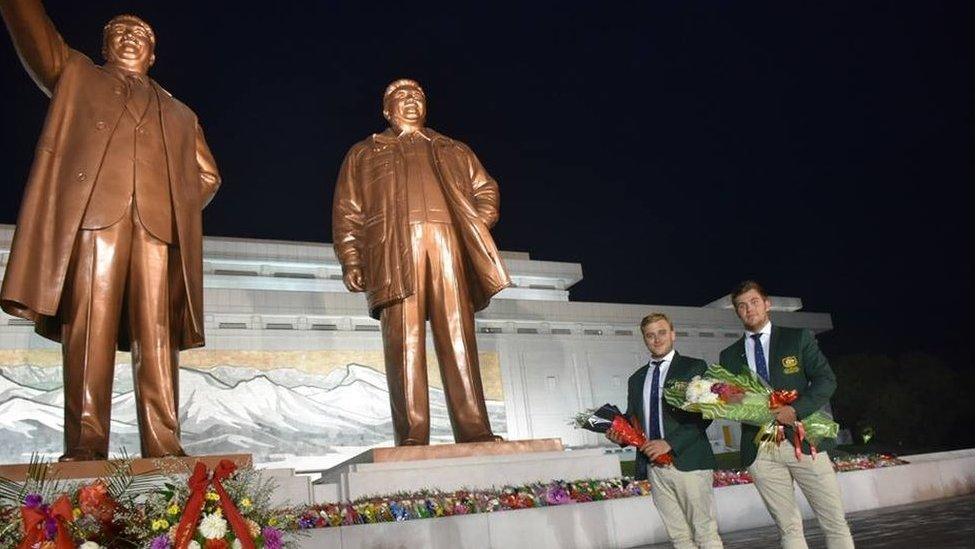
- Published22 February 2017
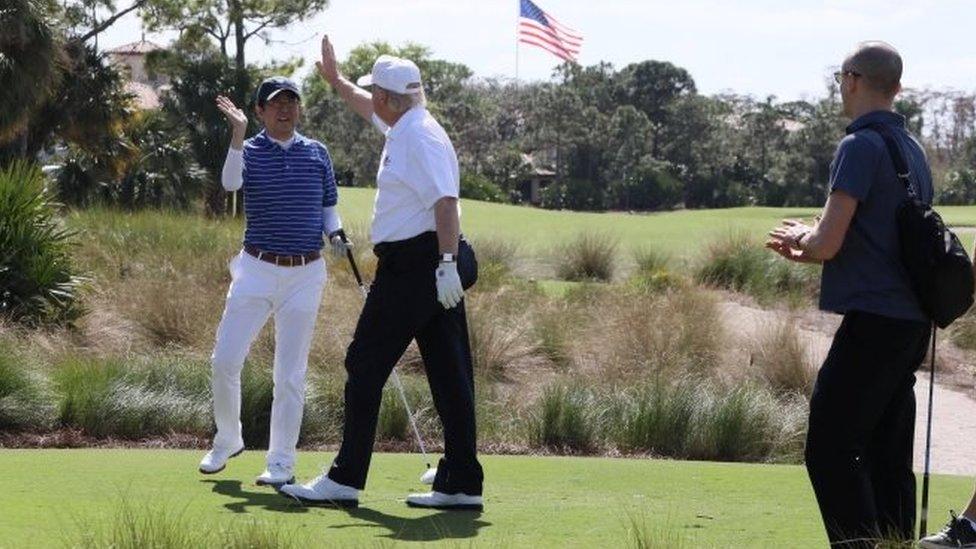
- Published26 August 2014
